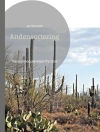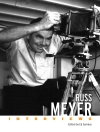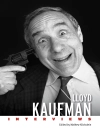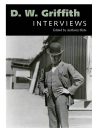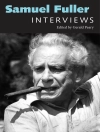The auteur theory—the belief that a director’s personal influence and artistic control over a movie are so great that the filmmaker is regarded as the key artist in making a film—was first popularized in America by film critic Andrew Sarris. In the New Hollywood Era of the 1960s and 1970s, as weakening studio control granted directors more artistic freedom, the theory gained traction, embraced by both the media and by directors themselves, and it came to be a significant factor in the filmmaking process. With its almost ubiquitous acceptance, the auteur theory also had, in hindsight, a negative effect. It undeniably played a role in establishing and romanticizing the dominance of the white heterosexual male point of view while ignoring the contributions of screenwriters and cinematographers, and worse, excluding marginalized aspiring filmmakers from the industry.
Mavericks: Interviews with the World’s Iconoclast Filmmakers amplifies the voices of a wide-ranging group of filmmakers whose identities, perspectives, and works don’t conform to typical Hollywood standards. Author Gerald Peary, whose experience as a film studies professor, film critic, arts journalist, and director of documentaries culminates in a lifetime of film scholarship, presents a riveting collection of interviews with idiosyncratic directors—including Black, queer, female, and non-Western filmmakers—whose unconventional work is marked by their unique artistic points of view and molded by their social and political consciousness.
Beginning in the 1970s and ending at the dawn of the new millennium, the collection includes Peary’s talks with more than twenty film pioneers. Prior to Kathryn Bigelow’s 2010 win as the first woman to receive an Oscar for best director, Peary interviewed cutting-edge female directors, including Iran’s Samira Makhmalbaf (Blackboards, 2000), Poland’s Agnieszka Holland (Europa, Europa, 1990), Norway’s Liv Ullmann (Sofie, 1992), and America’s Roberta Findlay (Snuff, 1975), who is the first female director of pornographic films. While some of the collection’s conversations focus on a single film, other interviews are an ambitious discussion of the filmmaker’s whole career. Interviews with a disparate range of male filmmakers are also included: Howard Alk (The Murder of Fred Hampton, 1971), Ousmane Sembéne (Mandabi, 1968 and Emitai, 1971), Mel Brooks (The Producers, 1967, Young Frankenstein, 1974, and Blazing Saddles, 1974), Gus Van Sant (My Own Private Idaho, 1991, Good Will Hunting, 1997, and Milk, 2008), and John Waters (Pink Flamingos, 1972, Hairspray, 1988, and Pecker, 1998). With contextualizing introductions and insightful questions, Peary reveals the brilliance of these maverick directors and offers readers a lens into the minds of these incredible and engaging artists.
Зміст
0. Introduction
1. ‘Howard Alk: The Murder of Fred Hamption’: Take One, May 1973
2. ‘Ousmane Sembéne’: Film Quarterly Vol.XXXVI, No.3 (Spring 1973), by Gerald Peary and Patrick Mc Gilligan
3. ‘An Interview with Marcel Ophuls’: The Velvet Light Trap No.9 (Summer 1973), by Gerald Peary and Maureen Turim
4. ‘Bernardo Bertolucci and 1900’: The Real Paper, October 29, 1977
5. ‘Pell Mel Brooks… and He is Mild’: The Real Paper, February 11, 1978
6. ‘Interview with Hal Ashby Regarding Coming Home’: The Real Paper, April 8, 1978
7. ‘Roberta Findlay: Woman in Porn’: Take One Magazine, September 1978
8. Short Visits with Three European Masters: ‘Interview with Eric Rohmer, ‘ The Real Paper, October 28, 1978; ‘Vladimir Nabokov and Rainer Werner Fassbinder, ‘ The Real Paper, October 28, 1978; ‘Werner Herzog at the Grave, ‘ The Real Paper, November 3, 1979, by Gerald Peary and Michael Wilmington
9. ‘Interview with Martin Ritt’: The Real Paper, March 17, 1979
10. ‘Two Interviews with Margarethe von Trotta’: Boston Review, April 1984, and The Globe and Mail, September 18, 1993
11. ‘Bill Forsyth: Speaking with Scotland’s Finest Filmmaker’: The Globe and Mail, September 1985
12. ‘A Rare-and-Brief Glimpse of Director Akira Kurosawa’: The Boston Herald, June 10, 1986
13. ‘Norman Mailer: Where Tough Guys Spend the Winter’: The Globe and Mail, January 16, 1987
14. ‘Volker Schlöndorff and Margaret Atwood: Handmaid’s Tale depicts futuristic Puritans in Harvard Square’: The Boston Globe, March 4, 1990
15. Gus Van Sant: Three Short Encounters
16. ‘Hybrid Identities: An Interview with Agnieszka Holland’: Visions (Boston), Summer 1992
17. ‘Errol Morris and Stephen Hawking: the Universe in a Mind’: Interview, September 1992
18. Two Interviews with Gillo Pontecorvo, The Boston Phoenix, undated: ‘Berlin 1991, ‘ and ‘Istanbul 1993’
19. Two Short Interviews with Liv Ullmann: ‘On Directing Sofie, ‘ The Boston Herald, September 3, 1992 and ‘On Directing Faithless, ‘ The Boston Phoenix, March 2, 2001
20. Two Interviews with Jim Jarmusch: ‘Jarmusch and Crazy Horse, ‘ The Boston Phoenix, November 1997 and ‘Samurai 101, ‘ The Boston Phoenix, March 17, 2000
21. ‘Interview with Frederick Wiseman’: The Boston Phoenix, March 1998
22. ‘A Talk with Benôit Jacquot’: Cineaste, Vol. XXV, No.3, Summer 2000, by Gerald Peary and Peter Brunette
23. Two Interviews with John Waters: ‘Pecker Head, ‘ The Boston Phoenix, August 7, 1998 and ‘Waters Trouble, ‘ The Boston Phoenix, May 10, 2002
24. ‘Set This House on Fire: William Styron and Charles Burnett’: The Village Voice, September 4, 2001
25. Voices from the Middle East: ‘Samira Makhmalbaf in Kurdistan, ‘ The Boston Phoenix, January 2001 and ‘Hany Abu-Assad: Palestine Now, ‘ The Boston Phoenix, November 2005
Про автора
Gerald Peary, an American filmmaker, professor, and critic, is the author of nine books on cinema. His work has appeared in the Los Angeles Times, Toronto Globe, Chicago Tribune, and the Boston Globe. Peary has directed feature documentaries, Archie’s Betty (2015), For the Love of Movies: The Story of American Film Criticism (2009), codirected The Rabbi Goes West (2019), and he acted in the cult independent feature, Computer Chess (2013).


